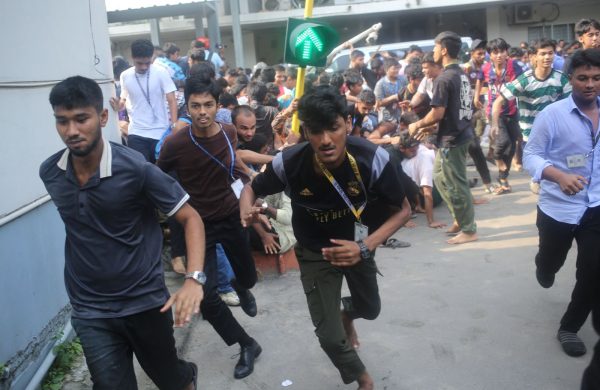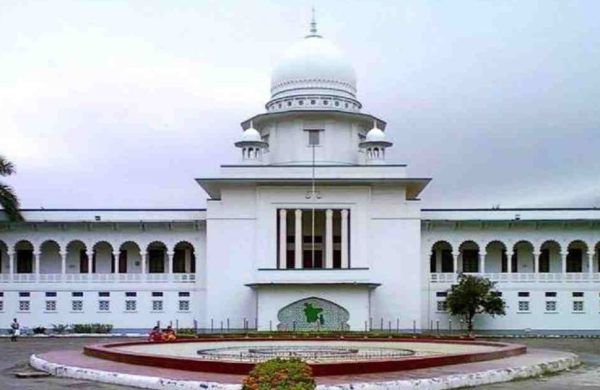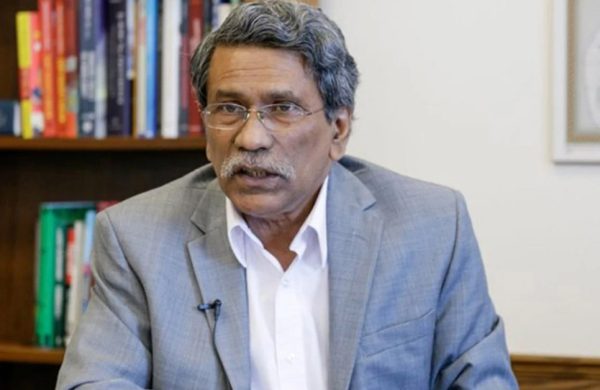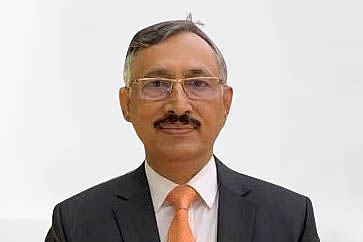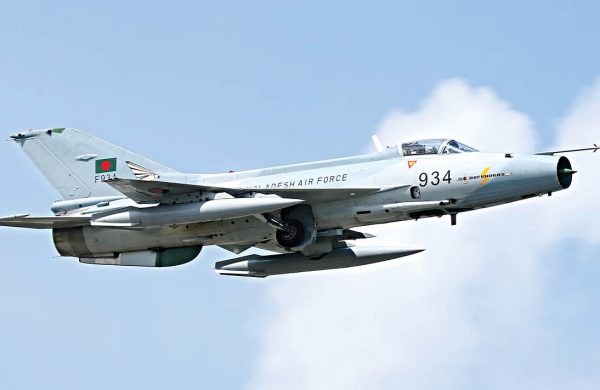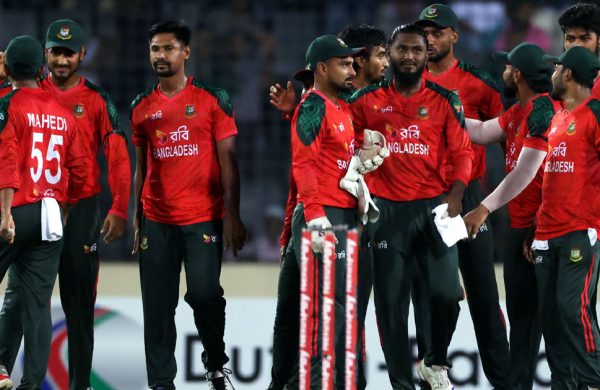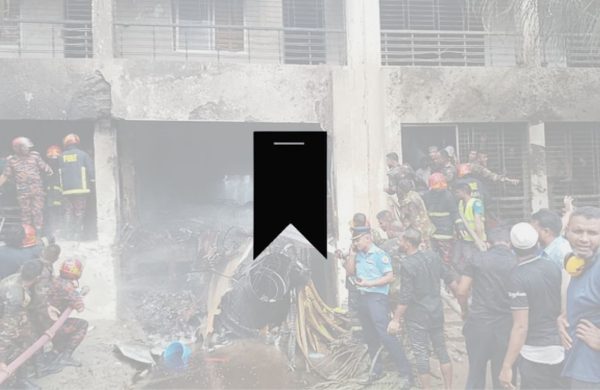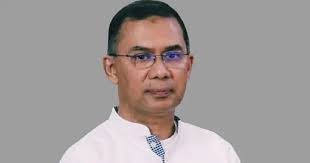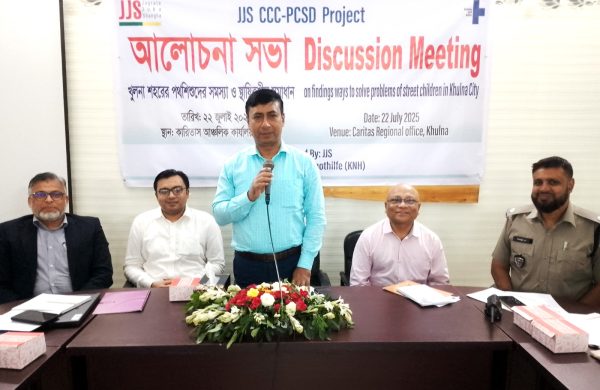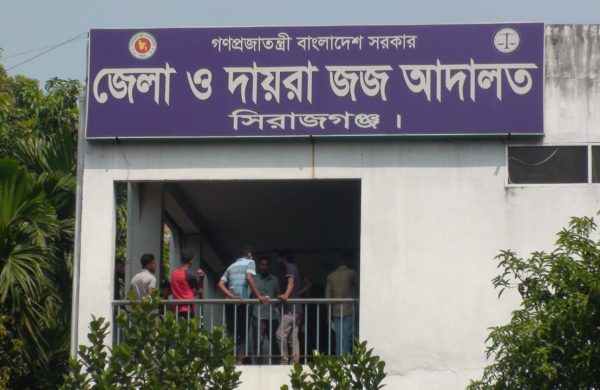Govt working to fulfill its three responsibilities: Salehuddin
- Update Time : Friday, May 30, 2025
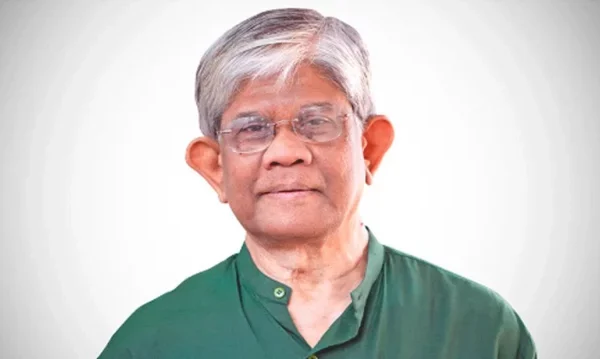
Staff Correspondent:
The main responsibilities of the interim government are three – holding elections, making some reforms not like long-term reforms, and giving outlines for reforms in sectors like banking, the National Board of Revenue (NBR), and police administration, Finance Adviser Dr Salehuddin Ahmed says.
“The most important priority is holding the trial for the crimes against humanity. But we can’t hold trials like kangaroo courts,” he told an interview on Friday (May 30).
When asked to explain the current political context, Salehuddin said that they are trying their best to deliver a national election.
Earlier, he said, people were not able to exercise their voting rights during the deposed regime since there were concerns over the law and order situation.
“We’re trying that such things do not reoccur. All the political parties want a good election. If everyone behaves democratically, even exercise of democracy is needed within the party,” he added.
The finance adviser said the most important thing is to have consensus among the politicians. “We’re hopeful that the administration, law and order enforcement agencies and the system remain well during the election.”
“We’re hopeful that a roadmap for the election will be given,” he said, adding that the chief adviser has already indicated that the next national election will be held between December 2025 and June 2026.
About the indiscriminate movements by various quarters, like staging sit-in programmes raising various demands, Dr Salehuddin said these often hamper daily work.
He said such things could not take place during the previous regime since those were suppressed. “But now such things have become a bit difficult for us,” he said.
Mentioning that the government is unlikely to backtrack from its commitment to separate the NBR, he said they would sort out the rational problems raised by the revenue board staff.
When asked about the possible dearness allowance in the next budget, he said the government would look into the matter. “If it is announced, then the government will have to deliver it. We’ll consider how much we can give as per their full expectations.”
Regarding the reforms of the NBR, the finance adviser said the decision for separating the NBR into two entities was necessary since there was no alternative for separating the revenue board.
“One entity can’t pursue policy (revenue) and its implementation at a time. It doesn’t exist elsewhere in the country,” he said.
Regarding the complexities arising out of the separation of the NBR, the finance adviser said that there was no alternative to going for separating the revenue board.
“We’ve separated the NBR and thus formed the revenue policy division and the revenue management division while it was necessary in principle,” he said.
Meanwhile, amid reservations from the countrywide NBR officials and employees, the government, in a statement last week said that there is no possibility of dissolving the NBR right at this moment since it is very time-consuming to implement the recently promulgated “Revenue Policy and Revenue Management Ordinance 2025” after necessary amendments.
“Under the current circumstances, all the operations of NBR will continue like in the past,” said a press release of the Ministry of Finance.
The finance adviser said the policy division would be small, where competent manpower in the tax regime would be there alongside economists and statisticians who would carry out the works of analysis and forecasting considering the socio-economic condition of the country.
“We’re not dissolving the operations of the revenue system; rather, its work would be carried out through the Revenue Policy and Revenue Management Division,” he said.
The ordinance was promulgated in principle, but there was nothing in detail, he said, adding that the manpower, organogram, and norms related to it are yet to be specified.
Salehuddin said they have told the NBR staff that everything would be finalised through discussions with them while no injustice would be done to anyone; rather, justice would be ensured.
He said the move for dividing the NBR was taken back in 2008, but it is now taking 17 years to separate the revenue board.
The finance adviser said an advisory committee was also formed for NBR reforms, but it was the government to decide to what extent the suggestions would be taken.
He said any law is enacted or any ordinance is promulgated for the sake of the country’s interests, while many experts both from home and abroad also gave their valuable suggestions on the NBR reforms.
Asked whether the NBR has been separated through ordinance following the IMF’s conditions, he said they had discussions with the IMF more on the issue of making the foreign exchange rate market-based.
He said the government itself had felt that the revenue board should have to be separated, let alone suggestions from the development partners like the IMF and the World Bank.
The recent finance ministry press release also mentioned that the officials and employees of the income tax and customs would conduct their overall operations under the existing system.
Besides, necessary amendments to the ordinance would be brought after consultations with the NBR and all-important stakeholders to frame the administrative structure of separation of the revenue board upholding the interests of the BCS (tax) and BCS (customs and VAT) cadre.


